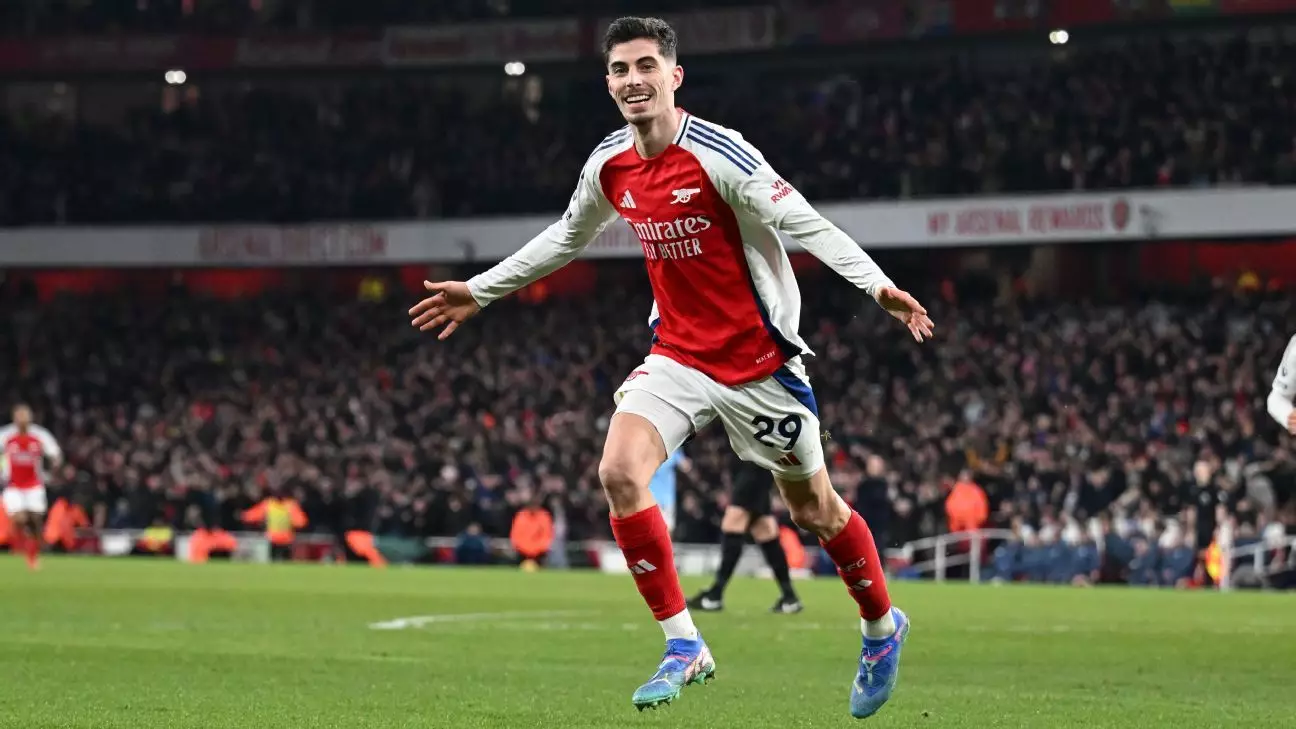In the face of adversity, the resilience of a team often hinges on the strength of its players. Mikel Arteta, the head coach of Arsenal FC, has found himself in a challenging position as the injury crisis deepens within his squad. Despite the setbacks, Arteta has chosen to focus on Kai Havertz, a powerhouse in the making, who has emerged as a potential linchpin for the Gunners as they navigate critical fixtures across three competitions. Arteta’s endorsement comes at a time when injuries to star players, Bukayo Saka and Gabriel Jesus, threaten to derail Arsenal’s aspirations. The spotlight on Havertz now intensifies as he is expected to fill the void left by these key absences.
Arsenal’s ambition in the January transfer window was clear—they sought additional firepower to complement their attacking options. The club’s bid of £40 million for Ollie Watkins was emphatically rejected by Aston Villa, reflecting the increasing competition in the market for quality players. This failure to secure a forward puts added pressure on existing players to perform. Gabriel Jesus’s knee surgery, which has ruled him out for the remainder of the season, accentuates the urgency of the situation. Meanwhile, Saka’s absence for the next month leaves the Gunners with a pressing need to rely on their remaining squad members, particularly Havertz.
Havertz’s pedigree as a £65 million signing from Chelsea illustrates Arsenal’s commitment to enhancing their attacking prowess. His season statistics show promise, with 15 goals and five assists over 33 appearances. Yet, lingering doubts about his consistency have arisen, especially in light of missed opportunities that came during a difficult stretch for the club. Arteta’s faith in Havertz is not just motivational; it is strategically essential as Arsenal gears up for critical matches, including the Carabao Cup semifinal against Newcastle. Arteta’s praise for Havertz’s physical attributes and work ethic highlights the player’s potential to shoulder a heavier workload.
Arteta’s comments about Havertz reveal a nuanced understanding of player management. Citing Havertz as a “genetic powerhouse,” Arteta underscores the importance of maintaining the player’s physical condition and mental readiness. He mentions that Havertz thrives on regular play, supporting the idea that a rhythm in fixtures may enhance his effectiveness. This approach touches on a broader theme in football management: adapting to each player’s unique needs. It suggests a collaborative relationship where the coaching staff and players are aligned in their understanding of what leads to optimal performance.
Beyond the immediate focus on player performance lies the need for structural stability within the club. Following the resignation of Edu, Arsenal is on the cusp of appointing a new permanent sporting director. Arteta hinted at a shortlist of candidates, which indicates a strategic move towards a more unified leadership structure. Stability at the director level could provide the necessary support in future transfer dealings, ultimately assisting in avoiding scenarios like the missed opportunity in January. As the footballing landscape evolves, ensuring a coherent strategy behind the scenes is critical for success on the pitch.
Arsenal’s current situation is one that demands concerted efforts and strategic thinking. Mikel Arteta’s faith in Kai Havertz reflects a broader philosophy that values resilience and trust in key players amidst challenges. As key individuals like Saka and Jesus recover, the performance of Havertz will be pivotal in determining Arsenal’s success across competitions. Equally, the upcoming decision on the sporting director position will play a crucial role in shaping the club’s future. The Gunners stand at a crossroads, and how they navigate these challenges will be significant in their pursuit of silverware and long-term growth.

